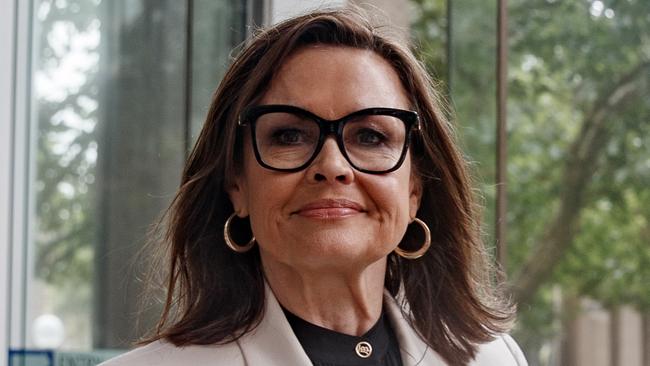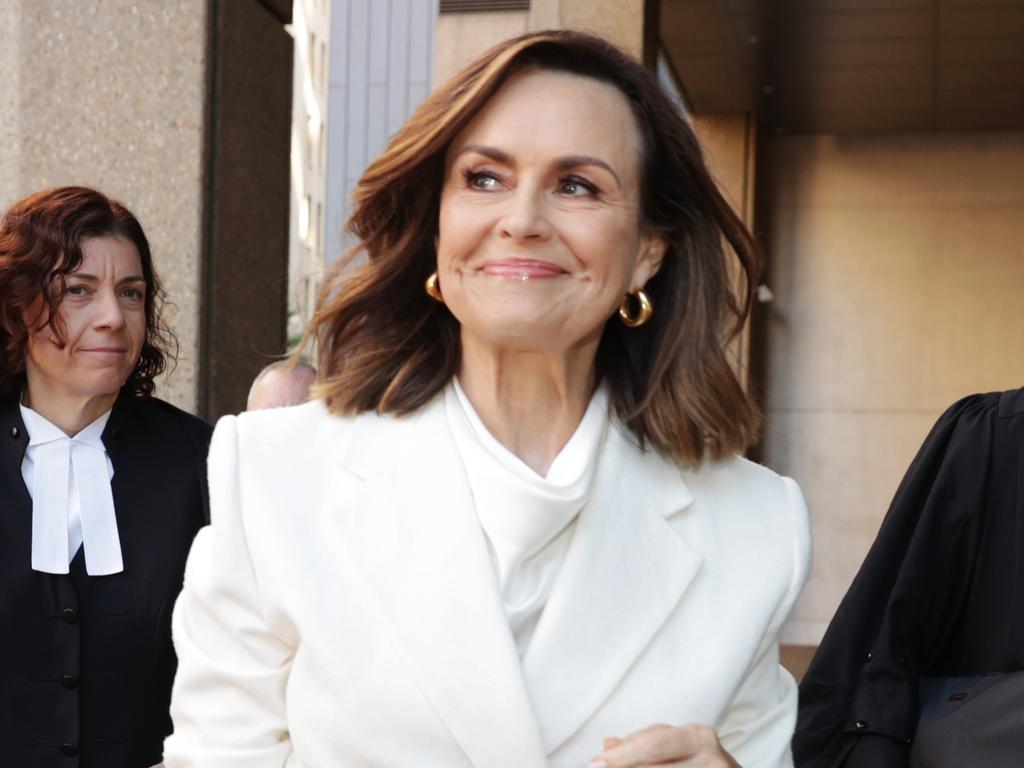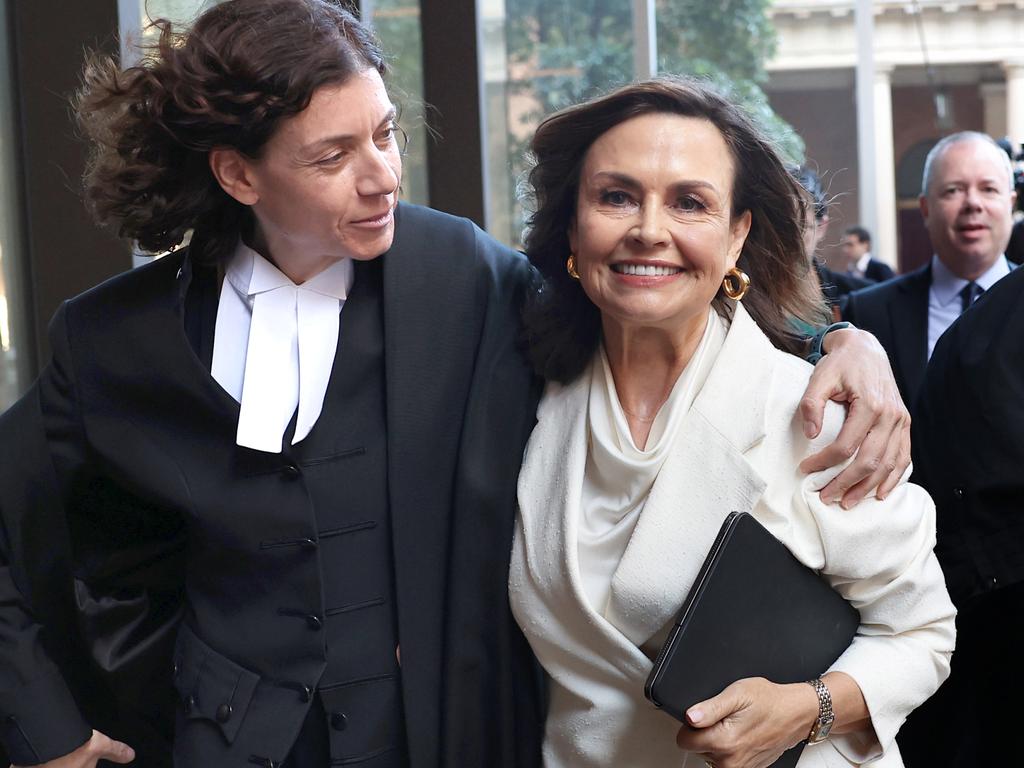Bruce Lehrmann judgment: Lisa Wilkinson criticised for ‘lack of candour’ in witness box
Despite her defamation case win, the Channel 10 presenter suffered a devastating personal blow in court over her ‘concerning’ appearances in the witness box.

Lisa Wilkinson left the Federal Court on Monday hugging her barrister, Sue Chrysanthou SC, and grinning widely after winning the defamation action Bruce Lehrmann brought against her and the Ten Network.
But in court less than an hour before, Wilkinson and her employer were excoriated by Justice Michael Lee over the standard of their journalism and their claims that the case had been the subject of a political cover-up.
In a devastating personal blow, Justice Lee found that Wilkinson had demonstrated “a lack of candour” in the witness box.
The judge was highly critical of Wilkinson’s conduct in the preparation of The Project’s story – in particular her unquestioning acceptance of Ms Higgins’ claims that she had been pressured not to go to police in order to avoid a political scandal on the eve of an election.
“Ms Wilkinson’s evidence did not lack self-assuredness,” Justice Lee observed, describing her as a polished and articulate witness.
“Regrettably, however, these not inconsiderable skills were often deployed by her in the witness box to advocate for her views,” he said.
Wilkinson’s first appearance in the witness box caused Justice Lee “concern” for a number of reasons.
The Project host had refused to concede that her Logies speech conveyed the message that Ms Higgins was credible and to be believed, and by implication, that her allegation of rape was true.
Wilkinson had not gone off “on a frolic”, having relied on legal advice from Ten’s in-house legal counsel, Tasha Smithies, but as “a fourth-estate éminence grise with 40 years’ experience” she should have known better.
“If she had thought matters through as an experienced journalist, and less as a champion for Ms Higgins, she ought to have known the speech was fraught with danger and recognised that lauding a complainant on the eve of a rape trial in the terms she did would be apt to undermine the due administration of justice,” the judge said.
“But in the end, what matters for present purposes is less any lack of judgment in giving the speech, but rather her lack of candour in the witness box by refusing initially to admit it conveyed the representation that Ms Higgins’ rape allegation was credible.”
This evidence illustrated a tendency of Ms Wilkinson to try to avoid making concessions, even an obvious one, he said.
Justice Lee was highly critical of Wilkinson’s treatment of Fiona Brown, who was Linda Reynolds’ chief of staff at the time and Ms Higgins’ immediate boss.
Ms Higgins had repeatedly claimed that she told Ms Brown, in the days after the incident, that she had been raped; Ms Brown has always vehemently denied this.
In her evidence, Wilkinson denied that The Project had suggested Ms Brown or Senator Reynolds pressured her not to go to the police, claiming instead that Ms Higgins “was putting pressure on herself”.
Not only was that wrong on any objective review of the broadcast, but it was disingenuous, Justice Lee said.
Wilkinson had also denied in the witness box that the program was highly critical of Ms Brown, and claimed that it had been “caring” of her.
That suggestion was “utterly unsustainable”, Justice Lee found.
Also of concern was Wilkinson’s willingness to double-down on the allegation that Ms Brown and Senator Reynolds were “active participants in a systemic cover-up of alleged criminal conduct when, upon any fair review of the available material, the basis for such a grave allegation is infirm”.
The evidence for the claim was little more than Ms Higgins’ “feelings” and her assertion that things were “weird”.
“The willingness to maintain that such conduct occurred in the absence of any solid, verifiable material in her possession, demonstrates (Wilkinson’s) willingness to engage in speculation. Or, to use her words, to ‘read … between the lines’,” he said.
While accepting that Wilkinson was “sincere and genuine in parts of her evidence”, Justice Lee said: “She never questioned the underlying truth of any of Ms Higgins’ allegations from the first moment they were articulated.”







